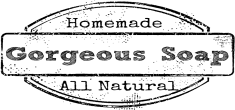 Yes, you’ve read that right: not all soaps are the same and we will help you know why.
Yes, you’ve read that right: not all soaps are the same and we will help you know why.
When buying soaps, most of us tend to see the manufacturer’s promise outside the box and forget about what really matters. The promise of fairer and softer skin easily pushes us to grab that bar of soap and disregard everything else. If it smells nice, then it’s probably good.
But even if the idea of picking out your soap is such a trivial process, there’s still some things you need to know to fully consider when picking out the best product for you.
SOAP is just SOAP, but not really…
No one really knows where the first soap ever made has originated from. However, the real soap breakthrough started during the seventeenth century where soap makers in Spain and Italy began to produce soap from goat fat and Beech tree ashes. This was followed by the French attempt to produce soap using olive oil.
Gradually, the soaps were infused with fragrances and were eventually specialized for bathing, shaving, shampooing, and laundry.
However, it was during World War I when the commercial soap we know of today came into picture.
Commercial soaps were first made through batch kettle boiling—the process of using huge three story kettles in production of thousands of pounds of soaps.
Not long after, Procter & Gamble introduced the continuous process—continuous addition of fat and removal of product—which helped soap production time to decrease to just a day and even less.
The rest, as they say, is history.
Now let’s see where the difference lies...
Despite the fact that not all soaps are created equal, most common bar soaps are distinguished by the presence surfactants.
This aggressive compound lowers the surface tension between oil and water to keep them from separating. It helps remove dirt and impurities from your skin.
Other common ingredients found in ordinary bars of soap include sodium tallowate and sodium cocoate.
The use of synthetic surfactants—sufractants made made from oils, fats or petroleum products that are not processed through saponification—introduced the syndet bars in the market. These kinds of soap bar are known to be the mildest commercial cleansing bar.
Handmade soaps are gaining a lot of attention from the market.
While several improvements are already made to make commercial bar soaps milder to the skin, consumers are leaning towards handmade natural bar soaps.
These products are composed of organic materials which make them better and safer alternatives to the chemically-laden commercial soaps.
There are many oils that can be used in making handmade soaps either vegetable or non-vegetable oils.
From Palm oil, Rice bran oil, Ground nut oil to Castor oil, Coconut oil, Tallow (beef fat) and Lard (pig fat) almost every oil can be used in soap making.
However, these oils should be incorporated in soap-making with enough caution. Some oils need to be used in moderation while others when used more can help benefit the skin in many ways.
For the liquid part, almost anything is fair game. Of course, the most common ingredient is water and other vegetable juices.
But nowadays, goat’s milk is continuously gaining popularity and is consistently earning praise from the consumer market. Goat’s Milk soap (get your goat’s milk soap here) are especially recommended to people with sensitive skin due to its mild formulation.
Based on our research here at Gorgeous Soap, raw goat’s milk when mixed with the right ingredients such as saponified oils of olive, palm, coconut, grapeseed will give you handmade soaps that are not just safe and good but also beneficial to people suffering from different skin conditions.
But whatever ingredient you use and add in your soap, the only thing that matters is how your skin responds to it.
So the question remains…
What is the best soap for you?
It depends.
Maybe you’re sick of using bar soaps and figured you’d like to try liquid soaps for a change. Or maybe you don’t believe that commercial soaps are harsh to your skin so you still turn a blind eye and resumed whatever you’re doing because this is not really an issue for you.
But just think about the last time you checked how your skin reacted to the soap you’re using.
If you have normal skin, chances are, you have a wide list of choices to choose from. Of course you can opt for the normal bar soaps but while you’re considered lucky, handmade soaps are still the best option for you.
For sensitive skin that are prone to rash and stings easily when exposed to strong bath products, very mild products are highly recommended. These include Gorgeous Soap’s goat milk soaps and other soaps made with all natural products.
Another option are commercial soaps that are specifically made for highly sensitive skin.
Finally, if you have oily skin it’s possible that you cleanse your skin too much rubbing it of needed moisture. But having oily skin doesn’t mean you have to resort to this. Anti-bacterial soaps can help reduce the production of bacteria in your skin that will ultimately lessen the chances of breakouts.
At the end of the day, not all soaps are good to your skin.
And this is something you should be concerned about. The little education we gave you can go a long mile if you acknowledge the needs of your skin.
Be intentional in knowing what works for you and what doesn’t.
Always read the labels of commercial soaps and know where you buy your handmade soaps from.
Taking care of your skin might need a little more effort than it used to but the benefits you’ll reap along the way should be enough of a motivation for you.
Click here to learn more about our wide selection of healthy Goat’s Milk soaps.
